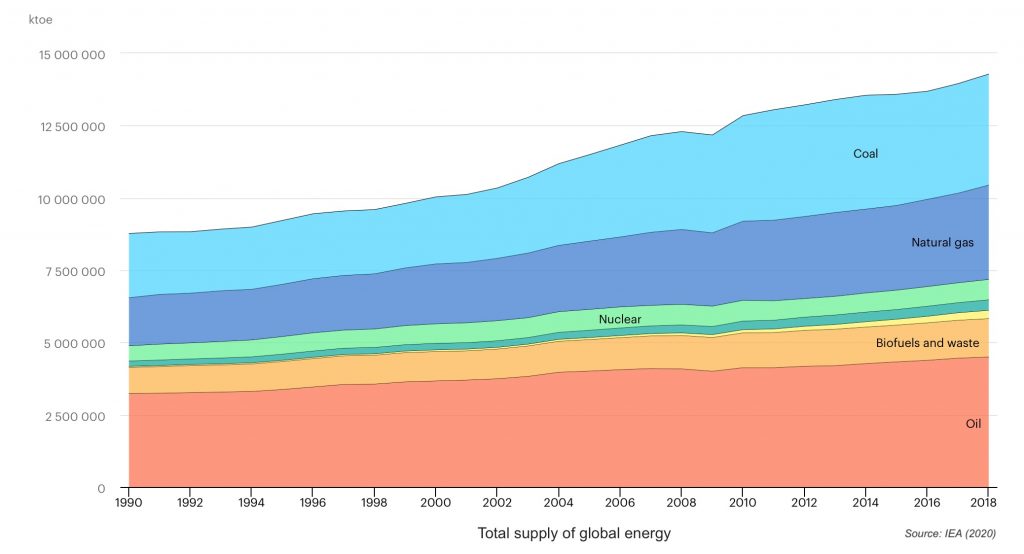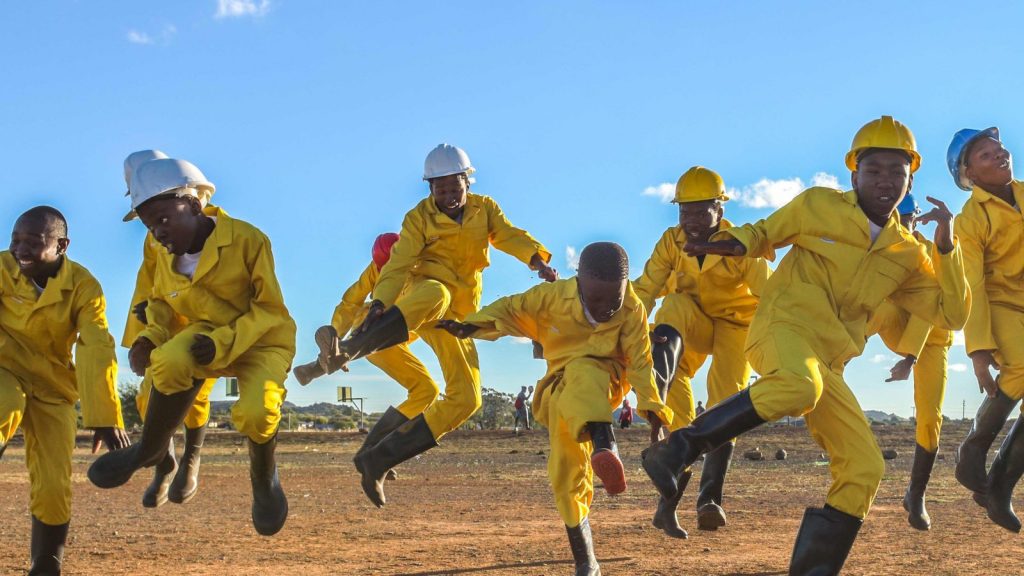
ESR at UCC
There’s one aspect of life online that I am really enjoying: never before have I been able to jump between courses, talks and seminars spanning such contrasting contexts. We are a global village. This article grew from a fascinating panel discussion that popped up by chance in my feed. A whole open-source, publicly available, one-to-one chat – all taking place right there in my kitchen. It seems I’m not alone. Nature recently released results of a poll of 900 of its readers that found 74% prefer an online component to conferences. What is missed in casual conversation over the coffee stand is gained in wider discussion between broader, more diverse parties who may otherwise never have met.
These disparate groups had a lot to discuss in May. Climate politics are trendy and trending. Last month saw Australia’s ruling that the government has a duty of care to defend its youth from climate change. Biden’s 6 trillion dollar budget for climate, education and infrastructure will be partially funded through a tax on the rich. Elon Musk reversed his stance on bitcoin given the fact that mining the cryptocurrency consumes the same amount of electricity as a small country – so much in fact that Iran has banned mining. Ahead of COP26, the IEA, an energy watchdog, published a detailed roadmap on just what is required globally to reach net-zero carbon emissions by 2050. Predictions amount to a 55% reduction in gas demand, 75% in oil and an eye-watering 90% drop in coal consumption over the course of the next three decades.

And then came the so-called triple blow to Big Oil: on May 27th Chevron’s shareholders won a majority at 61% for greater action on carbon emissions. The same day, ExxonMobil lost a vote to its shareholders and was forced to accept two climate representatives onto its board faced with pressure from activist investment firm Engine No. 1, which holds a less than 1% stake. Further, in an historic ruling, Royal Dutch Shell was the first producer ordered by a national court to reduce its emissions by 45% by 2030 following extensive campaigning by seven organisations under Friends of the Earth. Shareholders and climate activists agree on at least one thing: it makes little economic or environmental sense to chain profits to carbon.
These landmark events are welcomed as victories for climate accountability. However, action against oil multinationals poses complicated questions about the future of the fossil fuel market. There is the concern that less accountable extractors will move into the vacuum left behind. Though the IEA’s report stipulates an immediate end to extraction, much of the developing world is economically dependent on fossil fuels, predominantly through export. In a net-zero future, one has to question what will happen in the Nigerian or Venezuelan case.

Consider coal. My hometown, Johannesburg (eGoli, the “City of Gold”), has a cultural and economic legacy of mining, and not only gold. With an 86% reliance on coal for electricity, South Africa ranks as the 7th largest consumer of coal globally (foremost in the G-20) and is the 4th largest exporter worldwide. Despite recent declines in coal exports with falling demand, recession that placed unemployment at 42% before the onset of the pandemic, and with routine scheduled power outages, coal remains a massive source of employment with more than 100 000 directly employed in the extraction and production of coal-based electricity, not accounting for the informal market.
This is where that global village effect comes in. I was struck by Jesse Burton’s synopsis at FSR Global of the “coal paradox”– on the one hand a critical part of socioeconomic development, and on the other an existential threat.

With climate sitting pretty at the top of multilateral agenda, we now have to tackle the next wicked problem of the energy transition. Society needs to define what a “just” transition will look like. Pressured to keep global warming constrained to a 1.5°C increase, it is possible carbon-dependent countries will be forced to transition fastest, lacking a voice to lobby for inclusion. This is counterbalanced by large populations whose lives and livelihoods are inseparable from fossil fuels. In India, indirect linkages along the coal belt are considered to informally employ approximately 15 million people, exceeding reported estimates 30-fold (see Asst Prof Rohit Chandra). While just transition discourse is common parlance at the UN, World Bank and ILO to mention a few, high-level hand-wringing can only succeed with granular localised tailoring with boots on the ground. This is also a monetary discussion because citizen participation and equal opportunities mean little to wholly dependent stakeholders without the financial supports for displaced income.
The end of May brought a collective relieved exhalation from climate activists and counts as an irrevocable win. Decarbonisation will of course be painful and the really strenuous work is only beginning. Society needs to win on climate ambition as well as do this fairly.
Thankfully, research is changing and expanding. As we all sit in the same virtual lobby looking across at one another, more voices are mixing and mingling online. We’re not confined by time and space to the same extent as we were a year ago, and online events are attracting more participants with greater local knowledge – sometimes double as many.
From this vantage point, let’s see what we can do with June.


Comments have been closed/disabled for this content.